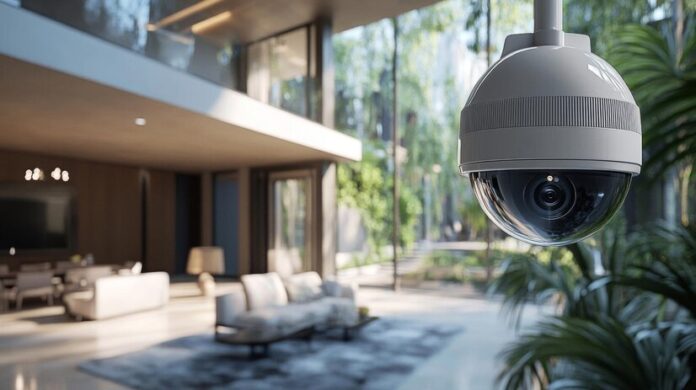In an era where home safety is a top priority for many homeowners, the implementation of home security systems has become increasingly popular. Not only do these systems provide peace of mind, but they can also have a significant impact on your insurance premiums. Understanding this relationship can help you make informed decisions about your home security measures and their potential cost benefits. In this article, we’ll explore how home security systems can influence your insurance premiums, the types of systems available, and tips for maximizing your savings.
The Connection Between Home Security and Insurance Premiums
Insurance companies assess risk to determine premiums, and homes without security systems are generally considered higher risk than those with adequate security measures. Here’s how a home security system can lead to lower premiums:
- Reduced Risk of Burglary
Homes equipped with security systems—especially those with alarms, surveillance cameras, and monitoring services—are less likely to be targeted by burglars. Studies indicate that homes without security systems are significantly more vulnerable to break-ins. As a result, insurance companies often reward homeowners with security systems by offering reduced premiums, reflecting the decreased risk associated with these homes.
- Lower Claims Frequency
Insurance companies prefer to minimize claims, and a home equipped with a security system is less likely to experience theft or vandalism. This decreased likelihood of claims leads insurers to offer lower premiums as they anticipate fewer payouts.
- Improved Safety Measures
Many modern home security systems incorporate additional safety features, such as smoke detectors, carbon monoxide detectors, and smart home integrations. These enhancements not only protect your home from theft but also reduce the risk of fire and other hazards. Insurance companies may consider these comprehensive safety measures when calculating premiums, often leading to further reductions.
Types of Home Security Systems
When considering the installation of a security system, it’s important to know the various options available:
- Monitored Security Systems
These systems are professionally monitored by a security company, which can quickly respond to alarms and contact emergency services if necessary. Insurance companies often offer significant discounts for homes with monitored systems due to the rapid response to potential threats.
- Unmonitored Security Systems
Unmonitored systems rely on audible alarms or alerting homeowners. While these systems may still deter burglars, they typically don’t offer the same premium discounts as monitored systems, as they may not provide immediate assistance in emergencies.
- Smart Home Security Systems
Smart security systems integrate various technologies, allowing homeowners to monitor their property remotely. Features can include smart locks, doorbell cameras, and motion sensors. These systems often come with smartphone apps that enable homeowners to control their security measures in real-time. The advanced nature of smart systems can lead to more substantial discounts from insurers.
- DIY Security Systems
Do-it-yourself (DIY) security systems are increasingly popular due to their affordability and ease of installation. While they may not offer the same level of professional monitoring, they can still be effective deterrents. Some insurers offer discounts for homes equipped with DIY systems, but the savings may not be as significant as those for monitored options.
Factors That Influence Premium Discounts
While having a security system can lower your insurance premiums, several factors determine the extent of the discount you can expect:
- Type of System
As mentioned, monitored systems typically yield more significant discounts than unmonitored systems. Insurers value systems that provide immediate alerts and responses.
- Coverage and Features
Insurers often look at the specific features of your security system. For example, systems with video surveillance, motion detectors, and fire alarms may qualify for larger discounts due to their ability to address multiple risks.
- Insurance Company Policies
Each insurance company has its own underwriting criteria and discount policies. It’s essential to shop around and compare different insurers to understand how they value home security systems.
- Location of Your Home
Homes in high-crime areas may receive more substantial discounts for security systems than those in low-crime neighborhoods, where the perceived risk is already lower.
How to Maximize Your Insurance Discounts
To get the most out of your home security investment, consider the following tips:
- Notify Your Insurance Provider
Once you’ve installed a security system, inform your insurance provider. They may require documentation or proof of installation. Always keep receipts and any relevant information that demonstrates the features of your system.
- Ask About Discounts
Not all insurance companies automatically offer discounts for home security systems. It’s worth asking your agent directly about potential savings associated with your specific system.
- Consider Bundling Policies
If you have multiple insurance policies (e.g., home and auto), consider bundling them with the same provider. Many insurers offer additional discounts for bundling, which can enhance your overall savings.
- Regularly Review Your Policy
As your home security measures evolve, so too should your insurance policy. Periodically review your coverage to ensure you’re receiving the best discounts available. If you upgrade or change your security system, inform your insurer to potentially qualify for new savings.
Conclusion
Investing in a home security system is not only a proactive measure to protect your belongings and loved ones but also a smart financial decision that can significantly impact your insurance premiums. By reducing the risk of theft and improving overall safety, a security system can lead to substantial savings on your homeowner’s or renter’s insurance.
As you consider options for home security, take the time to research various systems, understand your insurance provider’s policies, and communicate any changes in your security status. By doing so, you can maximize your insurance discounts and enjoy the peace of mind that comes from knowing your home is well-protected. Ultimately, the combination of enhanced security and reduced insurance costs makes investing in a home security system a win-win for homeowners and renters alike.

